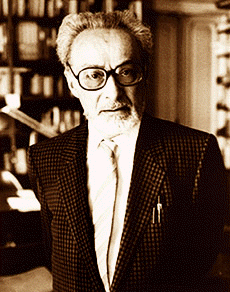By Elisa Garfagna
Shemà, one of the most sacred and significant prayers in Jewish tradition, transcends mere affirmation of faith; it serves as a profound point of connection among spirituality, anthropology, and psychology. Opening with the words “Shema Yisrael, Adonai Eloheinu, Adonai Echad” (“Hear, O Israel: the Lord is our God, the Lord is One”), this prayer embodies a series of values and principles that influence not only the spiritual life of Jews but also their cultural identity and psychological well-being. We delve into the meaning of the Shema through the lenses of anthropology and psychology, drawing parallels with the work of Primo Levi, one of the most significant witnesses of the Holocaust.
From an anthropological perspective, Shemà represents a declaration of unity—not just in terms of faith, but also as a cultural identification. Throughout Jewish history, unity has been a constant, a fundamental element for the survival and cohesion of the community. In a context where Jews have faced exile, persecution, and dispersion, the assertion that God is One becomes a call to unity, both with the divine and among community members. This resonates with Levi’s writing, which emphasizes the importance of solidarity and Jewish identity even in the darkest moments of history. In his work “If This Is a Man,” Levi reflects on the loss of humanity and the necessity of maintaining a connection to one’s identity, a theme that echoes Shema’s call to remain united and recognize the divine in every aspect of life.
Shemà also serves as a powerful tool for introspection regarding identity. Reciting this prayer daily provides an opportunity for individuals to contemplate their place in the world and their connection to tradition. In this sense, Shemà becomes a ritual reaffirming one’s Jewish identity, a means to reconnect with past generations and the present community. Similarly, Levi uses his writing to explore Jewish identity in a context of dehumanization. His narrative acts as an act of resistance, a way to remember who we are and where we come from, just as the Shema invites Jews to reconnect with their spiritual roots.
Psychologically, the Shema calls for listening and awareness. The word “Shemà” itself means “listen,” an invitation to attune oneself to both inner and outer worlds. This listening is not merely external; it entails deep introspection and reflection on one’s emotions, values, and relationships. The practice of reciting the Shema can serve as a meditative moment, allowing individuals to pause and reflect on the presence of God in their lives and the importance of interpersonal connections.
Through his experiences in the concentration camp, Levi reflects on self-awareness and humanity. His words urge us never to lose sight of our identity, even in moments of greatest suffering. The awareness of one’s existence and history becomes an act of resistance and affirmation, akin to the Shema’s invitation to recognize our connection with the divine and with one another.
Finally, Shemà carries an ethical and moral dimension reflected in the continuation of the prayer, which calls to “love Him with all your heart, with all your soul, and with all your might” (Deuteronomy 6:5). This exhortation to love God translates into an active commitment to live according to the values of justice, compassion, and responsibility towards others. Here, anthropology and psychology intertwine once again, as ethical commitment not only strengthens community bonds but also contributes to a sense of personal fulfillment and purpose in life.
Levi, through his testimony, implores us not to forget the lessons of the past and to take a stand against injustices. His work is a call to not remain silent in the face of suffering and oppression—a message that perfectly aligns with the Shema’s invitation to live with awareness and responsibility.
Shemà is not merely a prayer to be recited; it is an experience that embraces cultural identity, spirituality, and psychological well-being. Through listening and reflection, this prayer invites individuals to reconnect with their roots, celebrate unity, and engage in a journey of personal and collective growth. Similarly, Levi’s work serves as a powerful reminder of the resilience of Jewish identity and the necessity of keeping the memories of the past alive. In a world that often appears fragmented and chaotic, Shema and Levi’s writings emerge as beacons of unity and meaning, inviting us to live in harmony with ourselves, with others, and with the divine.

